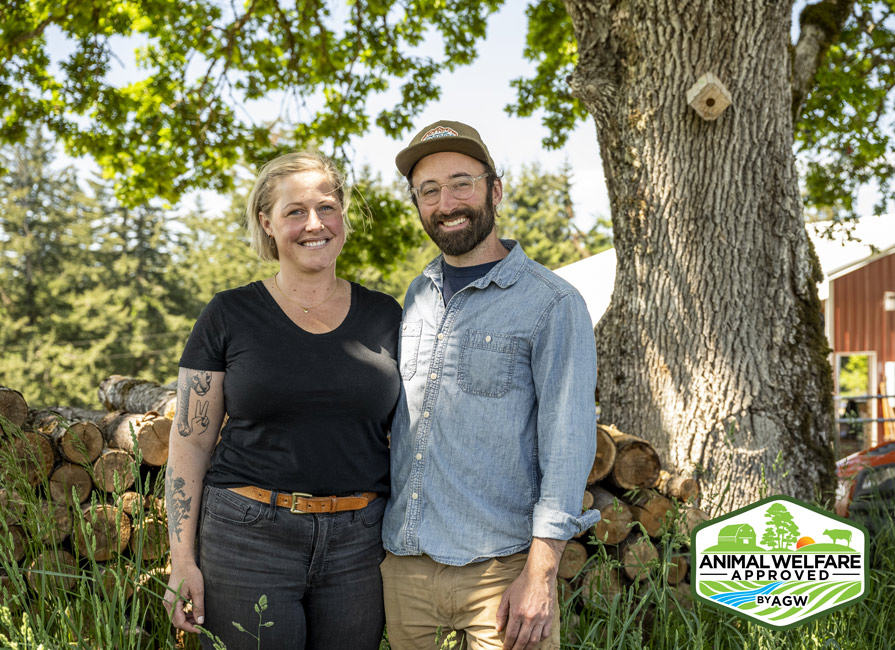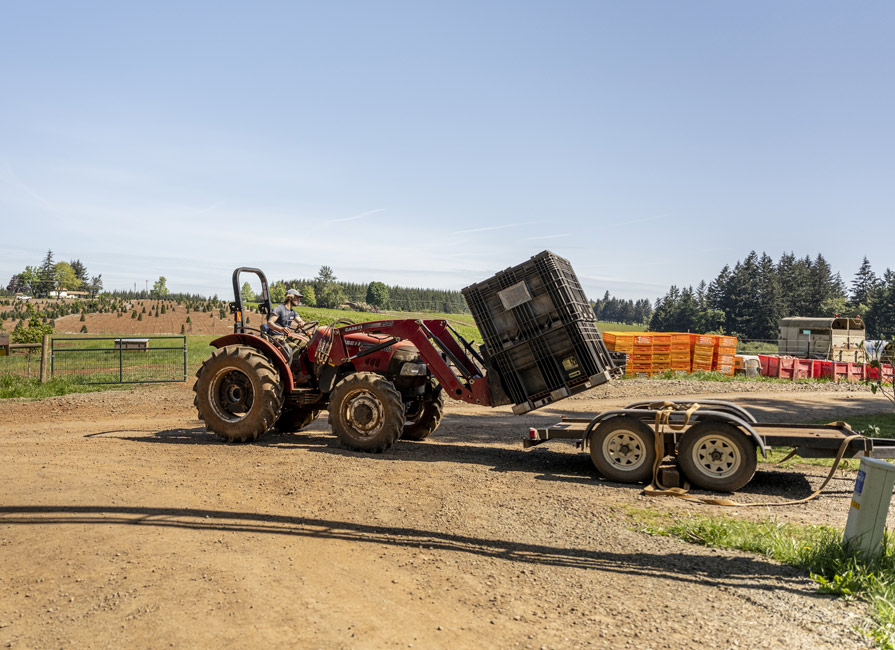One of the key attractions of our Certified Regenerative by AGW program is its practical…

Burning Desire
Zach and Christina Menchini own Campfire Farms, 30 acres of pasture and woodland near Mulino in Oregon in the foothills of the Cascades.
How did you get into farming?
Christina and I both lived in New York City in our 20s. We were avid farmers’ market customers and cared deeply about animal welfare, climate change, and nutritious food. Along the way, we started learning about the problems in modern agriculture and left New York, eager for a lifestyle change and to be ‘part of the solution’. We moved to Oregon in 2014 and raised 20 pigs on our farm the following season. Today, we market about 210 each year.
Describe a typical day
Like most farmers, every day is different! This is part of why I love farming. But things usually start around 8am with chores, before the daily meeting with the farm crew at 9:30am. We then move hogs to new pasture and break at 1pm for lunch. The afternoon is spent doing wellness checks. We aim to stop work around 5:30pm. Of course, some days are longer, but they are rarely shorter!
Sustainable farming: why does it matter?
We’re temporary stewards of our animals, the land we manage, and the Earth. The alternative to “sustainable” is the destruction of all of these things. We don’t have a choice!
How did you hear about AGW?
It’s a label we sought out as shoppers before we raised our own animals. Our certification is a quick way to communicate our values and practices. It’s opened up wholesale opportunities because grocery stores can easily understand and communicate our practices. It offers legitimacy and inspires trust—even if we can’t speak one-on-one.
Who are your customers?
Mostly families with young children that have similar values to us: a sense of responsibility to do as little harm as possible while also maintaining a healthy, balanced diet.
How can the market for sustainable food products be improved?
Right now we don’t produce enough to feed our community. We need more sustainable farms. Our products should be the norm, rather than the exception.
What is the biggest threat to sustainable farming?
Climate change. More specifically here in the west, access to water. We get a lot of rain but now only during about half the year. Our animals need to drink every day!
What keeps you awake at night?
Loose pigs!
AT A GLANCE
Farm: Campfire Farms. Mulino, OR
Certification date: February 2024
Size: 30 acres
Soil type: Silty clay loam
Altitude: 850 feet
Annual rainfall: 58 inches
Enterprises: Certified Animal Welfare Approved by AGW pigs campfirefarms.com
Originally published in the Fall 2024 issue of AGW’s Sustainable Farming magazine.


